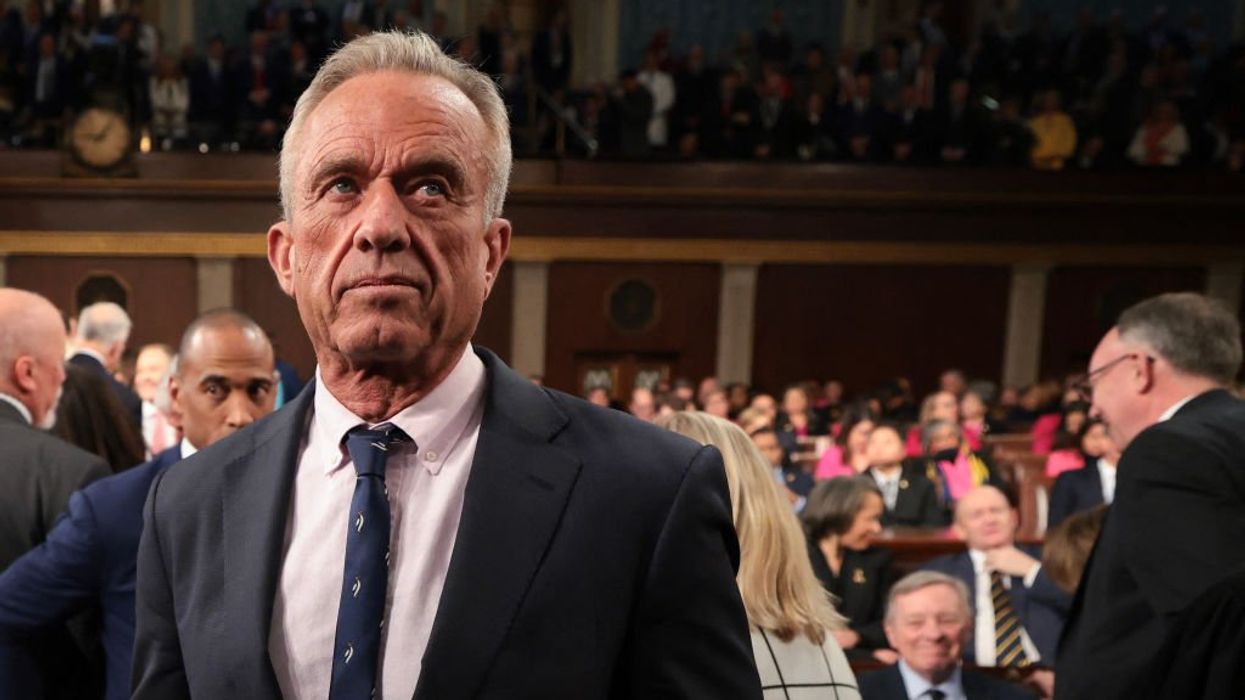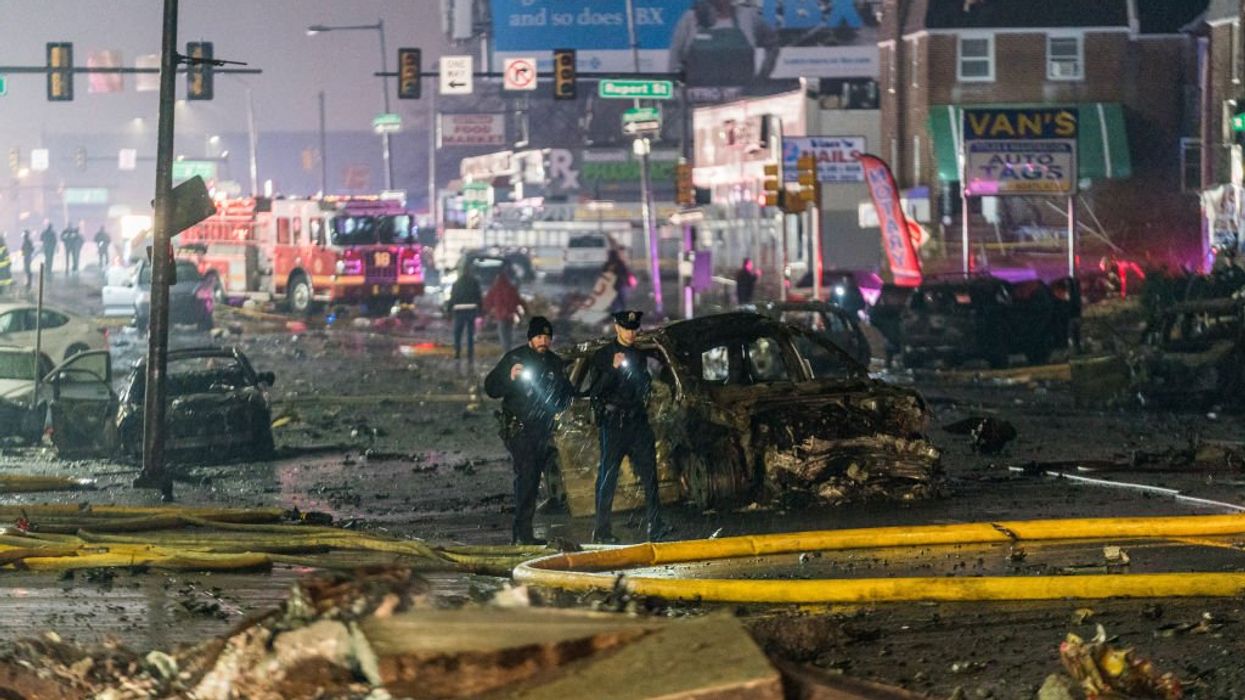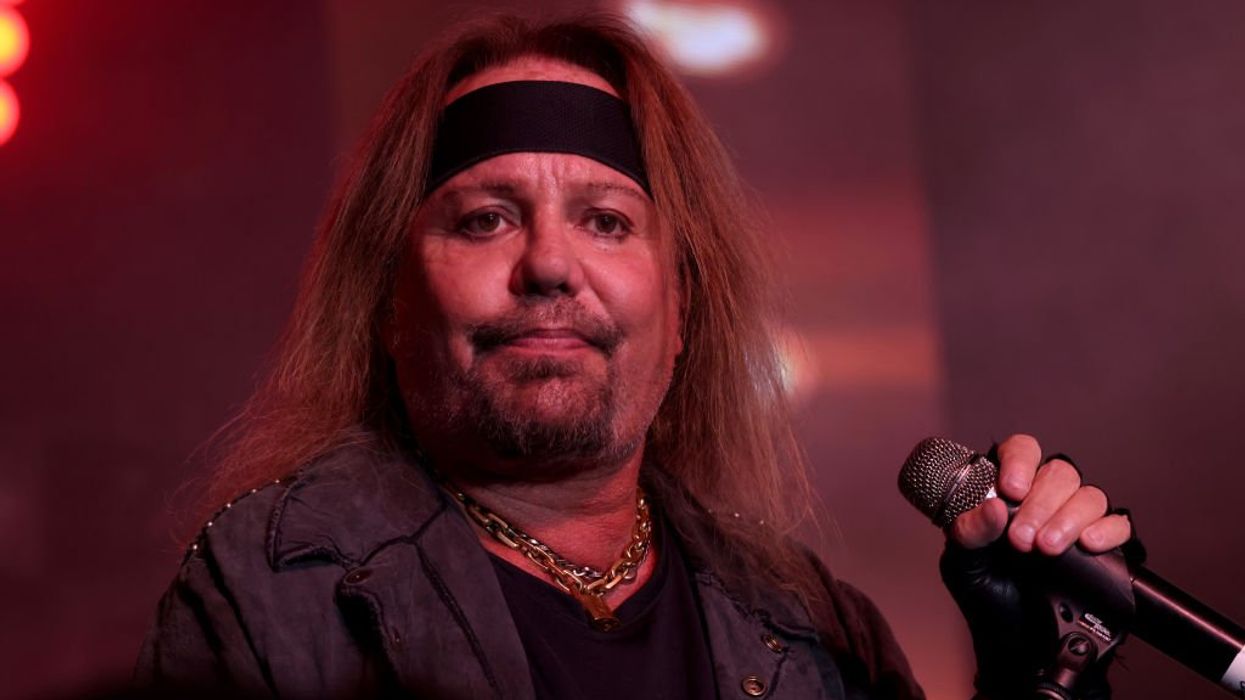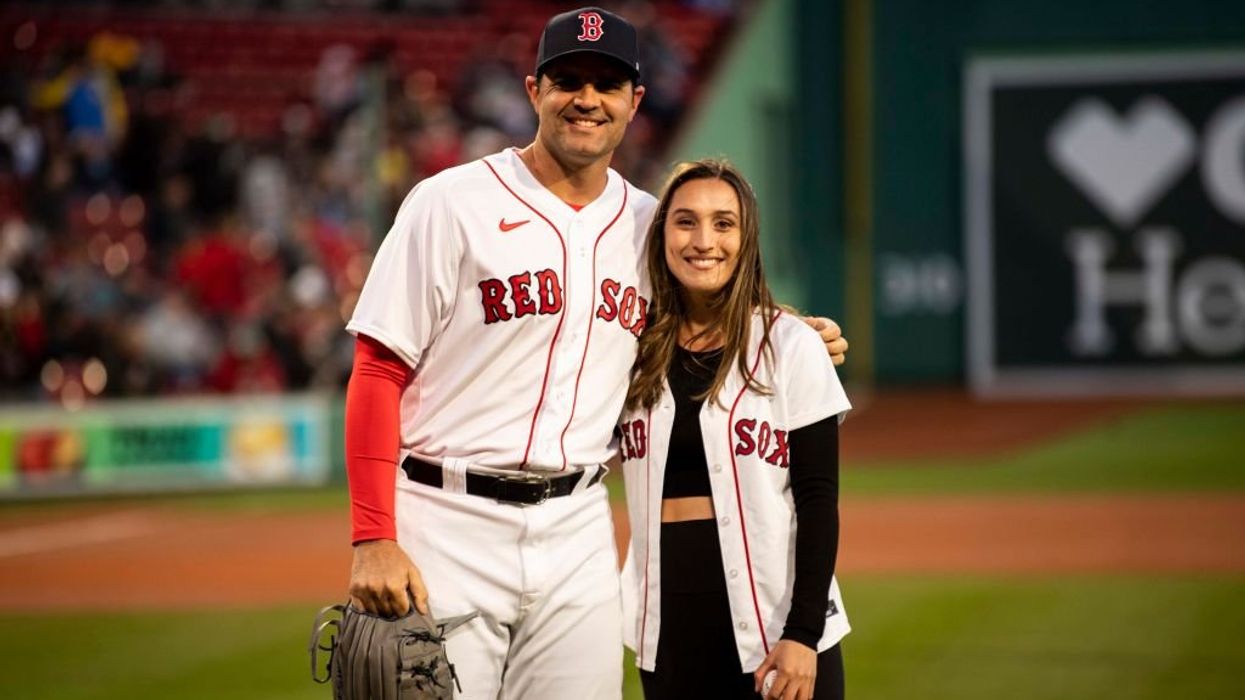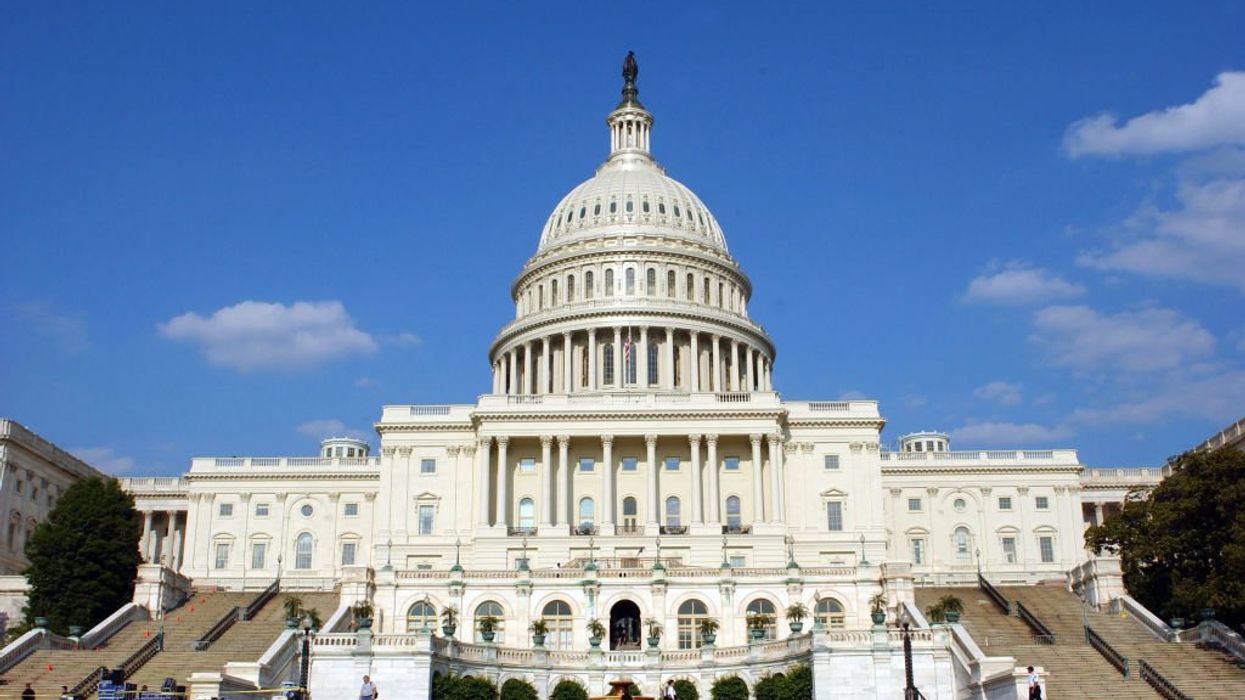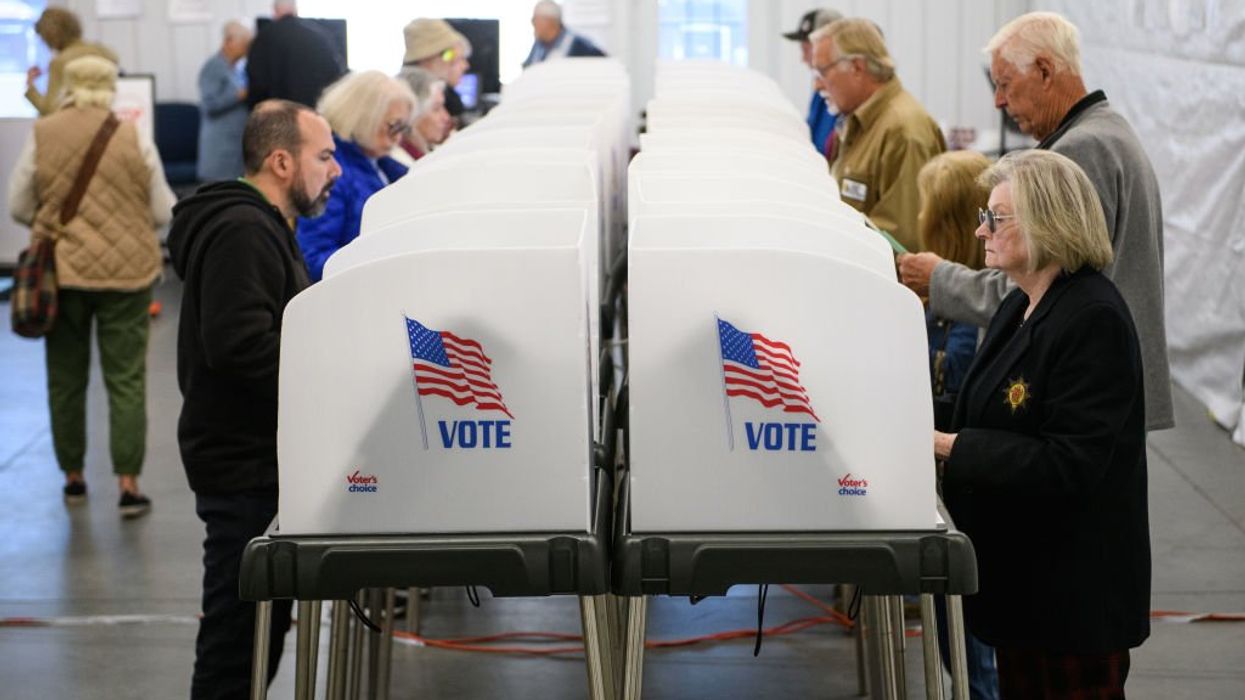By Meg Storm
Ever wonder what goes on behind the scenes at Mercury Radio Arts? Just how do all of Glenn’s crazy ideas get done? Does anyone ever get a chance to sleep? Well, over the next few months we are going to take you inside MRA, giving you the inside scoop on everything from publishing to special events, 1791 to Markdown to GBTV. We will be interviewing members of our New York, Columbus, and Dallas staff, bringing you all the info, so you can know what it’s really like to work for Glenn. Part 1 (Kevin Balfe – Publishing), Part 2 (Liz Julis – GBTV/Special Events), Part 3 (Joel Cheatwood: CCO & President of TheBlaze), Part 4 (Eric Pearce: VP, TV Operation of TheBlaze), Part 5 (Michelle Vanderhoff Network Operations Manager at TheBlaze)
Imagine leaving your job at CNN to get a call a few days later asking you to return and help launch a show for a radio personality who had virtually no television experience. Imagine then being the only person to leave your job at CNN and follow the now budding cable news star to Fox News, where you work your way up to senior producer in a matter of months. Finally, imagine leaving the comforts of working as an executive producer at a major cable news channel to join a fledgling online streaming network. Well, that just about sums up the remarkable career of Tiffany Siegel, V.P. and Executive Producer of Glenn Beck Programming
Siegel's journey is proof that with risk comes reward, and it is her work ethic and unfailing ability to translate Glenn's mile-a-minute ideas into a broadcast ready reality that took her from producing "all of the entertainment fluff segments" to the person calling the shots.
Life as an executive producer for Glenn can mean a long and stressful day, with Siegel getting into the office each morning in time for the 6:30AM meeting during which Glenn and his team figure out the content for the day and not leaving until after the Glenn's show is off the air each night, but she doesn't mind. After all, she is living her dream.
"Its pretty obvious - for this job at least - I went to Syracuse University, and I studied broadcast journalism," Siegel explained. "This was a lifelong thing for me."
She interned for CNN throughout college, and then took a job there after graduation. "I started in financial news, which was not that exciting. But at the time, it was during the Dot Com bubble, so we were launching all kinds of business programs. It was actually a good place to get your feet wet," she said.
Siegel ended up leaving CNN to work for CBS News, but it wasn't long before she got a call that would ultimately prove to be the opportunity of a lifetime. A producer at CNN, Conway Cliff (now a program consultant at TheBlaze), was launching a new daily show with a man named Glenn Beck, and he thought Siegel would be a good addition to the team.
"I was only at CBS for a few months because I left CNN and then Conway pulled me right back into CNN when Glenn's show came on because it just seemed like something so different then anything that network had done before," she recalled. "So I came in for an interview. I didn't meet Glenn, but I interviewed with Chris and Kevin Balfe. And then I met Glenn about two weeks before we were going to launch."
It was an exciting opportunity for Siegel that came at a very special time in her life. "I actually got married the week before we launched - the day Cheyenne [Glenn's daughter] was born - and then I came back from my honeymoon, and I think we launched the next day," she said with a laugh.
As far as Glenn is concerned, Siegel started at the bottom of totem pole. "I started as a segment producer doing, as Glenn tells the story, all of the entertainment fluff segments," she said. "When he tells a story about how you can make it big in his company he always says: Look at Tiffany, she started doing stupid, idiotic reality TV show segments for me."
"I did start doing a little bit of the lighter stuff," she continued. "I worked my way up - did a lot of field producing, and I guess that is when I really got to know Glenn. I did some stuff in the field, like when we went to Los Angles for a week, which enabled me some time with him working on different packages."
That trip to Los Angeles was actually one of the first chances Siegel got to really make an impression on Glenn, and it is safe to say things didn't quite go as planned.
"I didn't know Glenn that well, and I really wanted to show him that I wasn't just the fluffy reality TV show girl," she recalled. "So we were going to broadcast from the roof of the CNN building, which was pretty cool. I guess Glenn had just had these fancy suits made for his new TV career, and he had on his brand new L.A. suit that day."
"I took him up to the roof to show him this amazing vantage point, and the whole suit rips right before air. It just ripped," she said shaking her head. "I think they ended up putting masking tape on the back of it. And I was just like, 'Ok - this is the worst impression I could be making on this man.' He has these really nice fancy suits and it was ruined... that kind of sucked."
The incident was definitely an icebreaker, and it clearly didn't affect her chances for success. In fact, in retrospect it proved to be the beginning of an incredible partnership.
One of Siegel's fondest moments of her time at CNN came when a segment she produced made Glenn cry on television... for the first time.
"I think I made him cry for the very first time on set - at CNN anyway - we all know he has cried many, many times," she said sarcastically. It was a segment about a woman who had lost her son in Afghanistan, and she set up a foundation in his honor that would send packages to soldiers overseas. The woman was brought to the studio to talk about her story with Glenn.
"We had done a profile on her and her story, and she was on the set," Siegel explained. "So she watched the package with Glenn, and we came back from the piece, and he was just - you know Glenn - so hysterical that he could barely compose himself."
Considering how many tears Glenn has shed on the air, it is no small feat to say a story you produced caused him to cry for the first time. Siegel is one of the few people who have had the chance to work with Glenn since day one of his television career, and she has witnessed his evolution from novice to expert.
"Glenn, in the beginning, did not understand TV at all. He would say, lets get an expert on X, Y, and Z, and then they would be on the set that night, and he would be like, 'How did this happen?' He couldn't fathom how it worked," she said. "Now he is like, get me an elephant, two wild turkeys, and a monkey at five o'clock. And he expects it to be done. He has caught onto TV, the lingo, all of it. And now he is an expert on all of these things."
When Glenn decided to make the move to Fox News in late 2008, Siegel jumped at the chance to continue working with him. Of the entire production staff at CNN, she was the only one to follow Glenn. "I was the only one who took the risk at the time," she said. "That was scary, but exciting. And I knew that if Glenn was behind it, it was going to be fine. I knew him at that point, and I was comfortable with what he was doing."
With her days as the "fluff producer" long behind her, Siegel moved to Fox News as the second in command. "I was not running the show at first, but they had a senior producer that didn't work out," she explained. "So after about six months they put me in the driver's seat, and I was so excited. At that time we were the number two show in all of cable news, and I couldn't believe that I was running it!"
As executive producer, Siegel's job is to oversee the production and content of the show, providing Glenn with as many ideas as possible and keeping things organized - responsibilities that are much easier said than done when it comes to working with Glenn.
"I guess the thing with Glenn - what is that saying? The only thing consistent is change. That's Glenn. It is legitimately different everyday," she said. "He is not someone that likes to plan ahead, and even if he does plan ahead he will pretend that he didn't plan ahead. He'll be like, 'What are you talking about? I never said I would do that.'"
"For Glenn, I just like to come up with as many different story ideas with as many different topics as possible - so a ton of research, creative ways that he can tell stories," she continued. "We build that rundown from scratch everyday. We come in at 6:30 in the morning, and we meet with him and give him ideas. And then he marinates them in his head and comes out with that day's monologue, which has become the signature of the show."
There is no question that the opening monologue has become the hallmark of Glenn's program - lasting upwards of 20 minutes and packed full of thoroughly researched material that sets the tone for the rest of the show. "When we started with Glenn he was doing maybe four or five minute monologues, and people said that was too long, and you can't keep that up," Siegel explained. "And then we expanded them to twenty minutes, and now they can be up to an hour long. He is the only one on TV that I think can pull that off everyday."
Working with Glenn is also unique in that he generates so many of his own ideas. Siegel describes Glenn as "an idea factory," a quality that makes her job exponentially easier and more difficult at the same time.
"He is so not the typical TV host," she said. "He changes everyday. His ideas get bigger. No one works harder than Glenn, so just trying to - I don't want to say keep up with that - but I love the fact that he is absolutely the hardest working man in this building. To surround yourself with that just pushes you to do more."
"He is absolutely one of a kind, and completely unique. I have worked with a lot of other anchors and they are nothing like Glenn," she continued. "Glenn's vision is all his own."
Siegel has learned that a sense of humor is often necessary to ensure she keeps her sanity. "And then there is the silly factor of Glenn," she said with a laugh. "Like when the Supreme Court health care decision came down, he said that morning, let's have a circus on set. Let's have an elephant and horses and clowns. And he is dead serious! I have to be the magic fairy that makes that happen. It's a challenge, but fun... really fun."
It is running joke around the office that certain people have learned to 'speak Glenn,' and Siegel is one of those people. Her ability to anticipate his needs and understand the big picture is what makes their relationship work so well.
"I think from listening to him and working so closely with him, I do feel like I can often finish his sentences," Siegel admitted. "And I have a good memory, so if we did a show in 2009 where there is a certain sound bite that Glenn recalls, I can recall that too."
It also helps that in the six plus years Glenn has been on television, Siegel has only missed a handful of shows. "The only time I have ever missed a show was when I gave birth - and I only missed four shows," she said. "So people definitely think I am nuts, but just literally being on every show he has done on TV, allows you to remember all that stuff."
It also helps that Siegel has surrounded herself with a fantastic group of writers, producers, and directors. It is a team effort through and through. "Our team is unbelievable," she said without hesitation. "This team is all in it. Go big or go home."
When Glenn made the decision to leave Fox News and start his own online streaming network, Siegel was once again ready for the challenge. "Exposure wise it is obviously harder because you go from being part of the mainstream to being sort of under the radar," she said in regards to GBTV (now TheBlazeTV). "On a positive note, there is nothing we can't do. At the networks - at Fox or at CNN - we always had to get approval. If Glenn wanted to do a stunt or say something or do a show on location, we had to go to the 'second floor' - that's what they call it at Fox - or run it through executives."
The freedom to do whatever he wants, whenever he wants is something that Glenn was particularly excited about when he started GBTV. The freedom for Glenn to do whatever he wants, whenever he wants is something that can pose a bit of challenge for Siegel. "Now, we have no limitations, which is a blessing and a curse because sometimes if Glenn wants to do something nuts, we used to be able to say, 'Oh the second floor said no,'" she said with a laugh. "I'll say to Joel [Cheatwood, President/Chief Content Officer at TheBlaze] sometimes, 'We are the second floor. Help!' We can't say no now. It's just us. If Glenn wants to ride a horse into the studio, well, okay, make sure you are wearing your cowboy hat."
Despite all of the television wonders she has seen and produced over the years, one of Siegel's most memorable moments working for Glenn actually had nothing to do with TV.
"We were at Fox, and it was probably a Tuesday," she recalled. "Glenn decided it was his 10 year anniversary, and how could he let that go by without splurging on a last minute trip to Rome with Tania [his wife]."
Considering Glenn's show stars Glenn and Glenn only, taking the rest of the week off was going to be a little tricky. "So we had not been on Fox that long. We didn't have the liberty like we do now to just get a guest host," Siegel explained. "The only way to make this work was to tape like two or three shows back to back at one o'clock in the afternoon, and then he was going to get on the plane with Tania and go."
As if preparing for and taping three shows in one day was not complicated enough, Glenn added another piece to the puzzle when he decided the trip was going to be a surprise. "This was a really big ordeal, and it was like, no one tell, no one tell, no one say anything. This is the biggest surprise, and everyone managed to keep their mouth shut."
During the taping/broadcast of his show, Glenn can hear Siegel through an earpiece he wears, and when he speaks, she can hear what he is saying as well. Just as they were about to begin taping the first show, Glenn had a request. "We are right about to go on the air to tape the show," she said. "And I am in his earpiece, and he is like, 'Tiffany, I need you to do me a favor. I need you to ask my wife - (who is now waiting in the Green Room with no idea what is going on - she thinks she is here for this early show) - I need you to get her pocketbook and take her passport out because they need it so she can get on the plane.'"
"And I am like, you know, we can get you your circus elephants, but why would Tania give me her purse. Like I am supposed to take her pocketbook? She didn't really even know me at the time," she said.
As usual, however, she figured out a way to get it done. "But we somehow managed to sneak her passport out of her bag so she wouldn't know, and she was still surprised when she got to Rome. Its just so Glenn - go steal my wife's pocketbook, and steal her passport, and she won't notice."
It may sound nuts, but it is just another day at the office for Siegel, and she wouldn't have it any other way. "It sums up my job," she said with a smile. "I am responsible for everything from making sure the show gets on the air to making sure he has a Coke Zero at all times."





